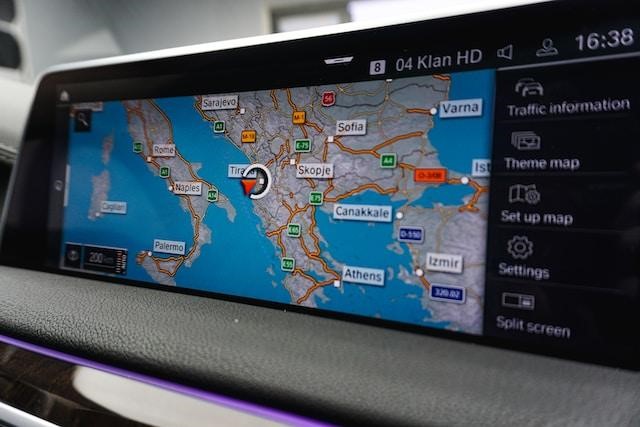Almost 3,700 deaths are reported daily due to road accidents, translating to over 1.35 million people annually. Most of these accidents are preventable as they occur due to human factors such as speeding, distractions, and running red lights.
Smart vehicle tracking is a technology that seeks to improve road safety. Unlike traditionally, vehicle location was the main target; nowadays, companies and individuals can monitor other elements, like speed and vehicle condition, for enhanced road safety.
Road safety is essential in reducing fatalities, injuries, and property damages. Improving road safety is possible due to technologies like the Internet of Things, GPS, artificial intelligence, and cloud computing. Road safety is set to improve with continuous smart technology improvements due to the rise of smart cities.
In this guide, we explore more on how tracking transforms road safety.
Understanding Smart Vehicle Monitoring Systems
Smart vehicle monitoring and tracking systems use advanced technologies incorporating hardware and software to track and monitor vehicles. Usually, the systems use GPS and onboard vehicle sensors to transmit real-time information about the vehicle’s location, speed, fuel, driver behaviors, and others.
Many vehicle tracking companies provide an advanced truck tracking system with real-time tracking. Finding the ideal lets you track your driver behavior, speed, and other aspects directly influencing road safety.
What Makes Smart Tracking Systems Perfect for Road Safety Enhancement?
Vehicle tracking systems come with sophisticated features that enable real-time data transmission. Some of the features that allow enhanced road safety include:
1. GPS Tracking

https://unsplash.com/photos/H0FHpRQVh1A
This is one of the main features that allow smart trackers to ensure safety on the road. Usually, GPS enables vehicle owners to know the current location of their vehicles and driving speed. This is important since monitoring whether the driver is adhering to the road speed limits is possible.
2. Vehicle Health Monitoring System
Monitoring vehicle health is vital and helps to keep roads safe. This feature utilizes onboard sensors and computers to transmit real-time vehicle systems functioning. The system enables engine and tire pressure, available fuel, transmission problems, and engine malfunctions.
Getting the real-time condition of your vehicle enables you to take proactive measures. These days, predictive AI technology recommends the appropriate action, hence averting accidents emanating from mechanical issues.
3. Enhanced Safety Features
Some of the smart tracking systems come with enhanced safety features. Some of these features include anti-collision and driver fatigue monitoring capabilities. When a tracking system offers these features, it ensures improved safe driving.
4. Driver Behavior Analysis
Driver’s road behavior analysis is essential in ensuring they adhere to safe driving. Unlike traditional analytic tools, modern driver analytic software is AI-powered, which enables more accurate data.
5. Route Optimization Features
These days, it is possible to monitor traffic conditions in real-time. By having AI-powered tracking software, it’s easy to optimize the route your vehicle will follow. Assigning your vehicle routes with less traffic reduces the chances of collisions and crashes.
How Does Smart Tracking Improve Road Safety?
Embracing smart vehicle tracking is one of the ways to improve road safety. Some of the ways technology achieves this are explained below.
1. Real-Time Vehicle Speed Monitoring

https://www.pexels.com/photo/globe-with-push-pins-7236026/
Speeding is one of the major causes of accidents, accounting for 29% of all accidents. Equipping your vehicle with smart tracking systems can aid in monitoring driving speed. By accessing the real-time speed, it’s easy to proactively warn drivers about speeding, hence reducing the chances of accident occurrence. Real-time speed tracking is possible via GPS or IoT technologies.
2. Promoting Responsible Driving Behavior
Tracking vehicles using smart trackers gives you an upper hand since you can see drivers’ behavior. It’s possible to see detailed reports on acceleration, braking, and idling. Like speeding, companies can advise their drivers on improving behaviors proactively to prevent accidents.
3. Encouraging Efficient and Timely Vehicle Maintenance
Tracking software with an onboard diagnostic feature notifies you when the vehicle needs servicing. Knowing when to service a vehicle is essential to eliminate faulty vehicles from the road. Consequently, well-maintained vehicles mean reduced chances of accidents happening.
4. Improved Response Time
The latest tracking software comes with collision reporting capabilities. In case of an accident, the feature prompts automatic reporting that enables an emergency response. Since the software broadcasts real-time location, it’s possible to pinpoint the exact area of an accident, thereby providing life-saving services on time.
What Is the Future of Smart Tracking Technology in Improving Safety?

https://www.pexels.com/photo/cars-ahead-on-road-593172/
Smart tracking technology is expected to improve even further to enhance road safety. AI is one of the transformative technologies that is significantly boosting the transportation sector. The technology is majorly used in predictive analysis and intelligent transportation systems.
The development of autonomous vehicle systems can also be improved to improve drivers’ driving skills. Even better, tracking systems with powerful AI algorithms are expected to monitor drivers’ behavior and take over the vehicle in case of fatigue and distractions to prevent accidents.
Although much is expected to improve in smart tracking technologies, there is a need to address all the shortcomings. For instance, using AI-based technology can cause privacy issues that must be addressed before full implementation.
Conclusion
Utilizing smart trackers is effective in combating road accidents. These software are enabled with powerful technological integration to enhance road safety. Smart trackers are expected to improve and provide more functionality with technology that is still evolving. As more people adopt these technologies, the market will expand shortly.







